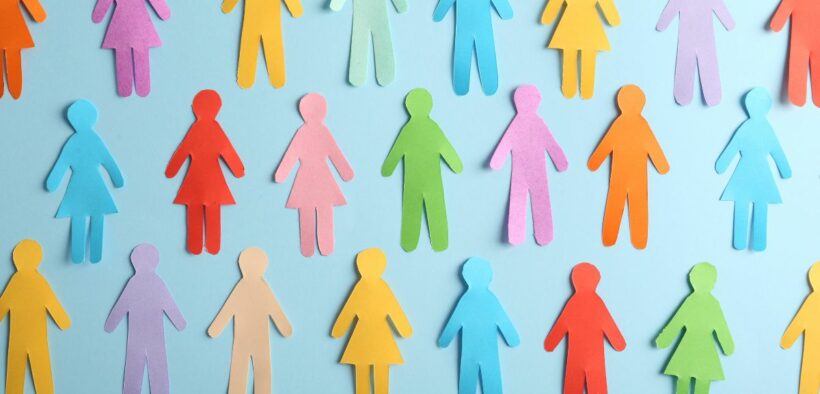Gender equality is a critical social issue that requires collective action and advocacy to create a more inclusive and equitable society. In Australia, despite significant progress, gender disparities still persist in various spheres of life. A recent Women for the World report by Caritas Australia found that Australians are conscious of gender discrimination issues in Australia, with 75 per cent of all Australians across both genders believing women face discrimination here.
Gender equality is not just a women’s issue; it affects everyone. Embracing diversity and fostering inclusion empowers every individual to flourish, regardless of their gender. Taking action for a gender-equal future begins with self-reflection and an unwavering commitment to challenge the status quo. Through education, advocacy, and breaking down barriers, we pave the path towards a more inclusive and equitable world, where every individual can thrive, unencumbered by gender stereotypes and discrimination.
STEP 1: EDUCATE YOURSELF AND OTHERS
The first step towards promoting gender equality is educating yourself about the underlying issues and challenges faced by different genders. Understanding the historical context, systemic biases, and intersectionality is crucial in developing empathy and promoting informed discussions. Engaging in open conversations and sharing knowledge with family, friends, and colleagues can also help raise awareness and challenge preconceived notions.
STEP 2: CHALLENGE GENDER BIAS AND STEREOTYPES
Be vigilant about challenging gender bias and stereotypes whenever you encounter them. Speak up when you witness unfair treatment or discriminatory practices based on gender. Encourage open dialogue to challenge these harmful beliefs and foster understanding.
STEP 3: SUPPORT POLICIES FOR GENDER EQUALITY
Advocating for policies that advance gender equality is crucial in creating lasting change. This includes supporting measures that address pay gaps, promote work-life balance, provide parental leave, and combat gender-based violence. Active engagement with policymakers, participating in advocacy campaigns, and voting for representatives who champion gender equality can all contribute to meaningful policy changes.
STEP 4: BE AN ALLY FOR EQUAL REPRESENTATION
Supporting gender equality requires active allyship from people of all genders. Being an ally means standing up against discrimination and actively advocating for the rights and wellbeing of others. By amplifying marginalised voices, challenging oppressive behaviours, and promoting inclusivity, allies can help create a safer and more supportive environment for everyone.
STEP 5: SUPPORT WOMEN IN LEADERSHIP
Supporting women’s leadership is essential in breaking down barriers and encouraging equal representation in decision-making positions. The study conducted by Caritas Australia revealed that 70 per cent of all Australians still feel there is a need to increase the number of female CEOs and politicians. By actively encouraging and endorsing women for leadership roles, both in the public and private sectors, Australians can contribute to a more diverse and inclusive leadership landscape.
STEP 6: ADDRESS GENDER-BASED VIOLENCE
Gender-based violence remains a significant barrier to achieving gender equality within Australia and even more so across The Pacific. When it came to looking at The Pacific, four in five Australians felt we should be doing more to support the victims of domestic violence. And there is still a lot of work to be done here at home too. Australians can support this cause by raising awareness, supporting organisations that provide assistance to victims, and advocating for comprehensive measures to prevent and address domestic violence and sexual assault.
STEP 7: CHILDREN ARE THE FUTURE – THEY LEARN WHAT WE TEACH
As parents, educators, or caregivers, be mindful of the messages conveyed to the younger generation. Encourage children to question gender norms and expectations. Provide them with equal opportunities to explore their interests and develop their skills without limitations based on gender.
Promoting gender equality is a collective responsibility that requires active participation from individuals, communities, and institutions in Australia. By taking steps to educate ourselves and others, fostering allyship, challenging stereotypes, supporting progressive policies, and promoting a culture of respect and empowerment, we can work towards a more equitable society. Embracing gender equality benefits everyone and creates a stronger, more inclusive Australia for future generations. Let us unite and take action to drive positive change and create a brighter future for all genders.
Kirsty Robertson was appointed as the CEO of Caritas Australia in September 2019. As CEO she works alongside the Board of Directors to support the staff, volunteers and partners of Caritas Australia to deliver the Agency’s mission. Kirsty previously held various positions at Caritas Australia including Pacific Programs Coordinator and Communications Group Leader. She was CEO at Mary MacKillop Today and held numerous leadership roles in other faith-based aid and development organisations. In May 2023, Kirsty was elected as the new Vice President of Caritas Internationalis, to serve the Confederation over the next four years across 162 national Caritas member organisations.


































































































































































